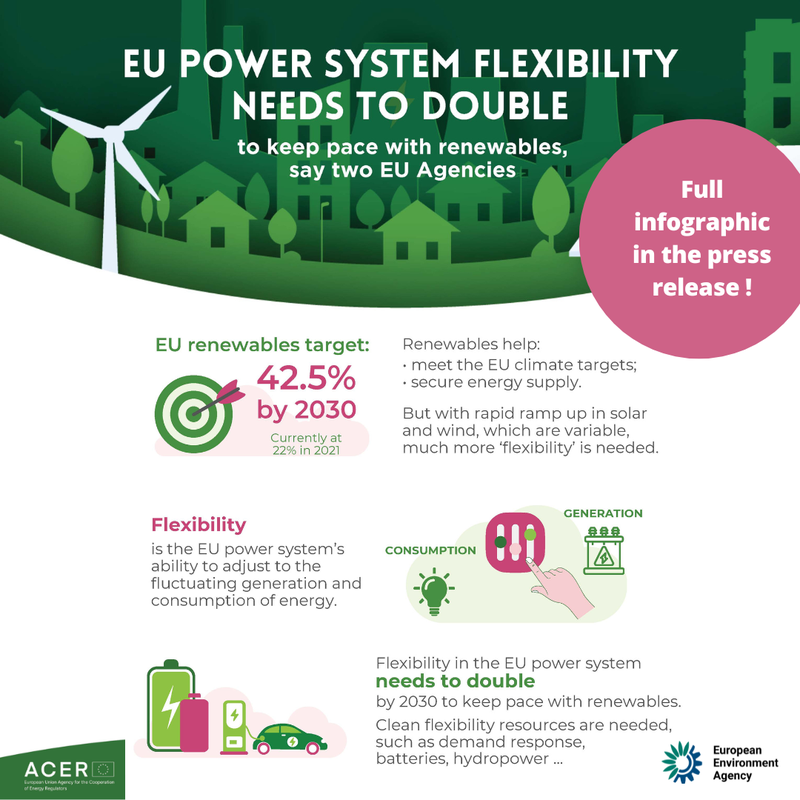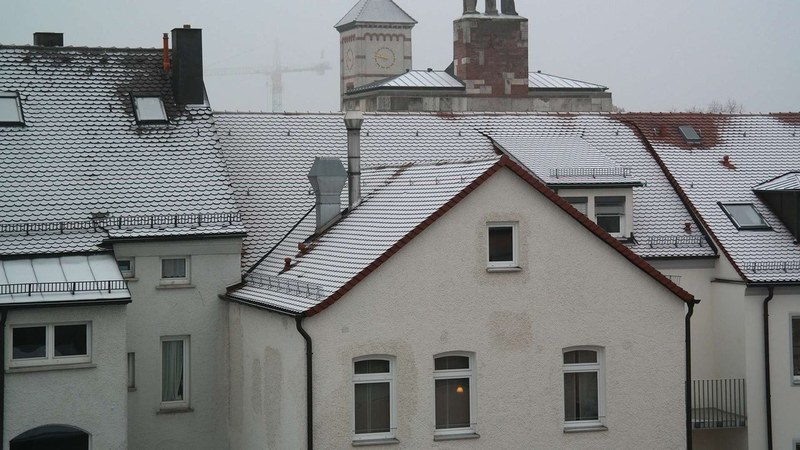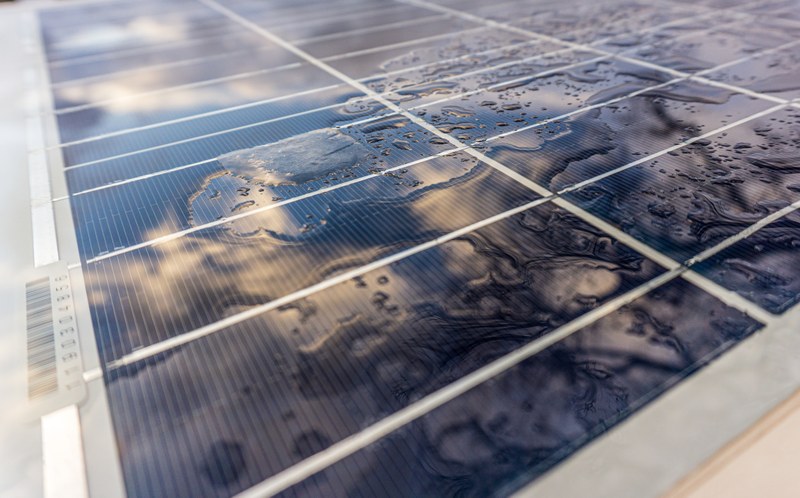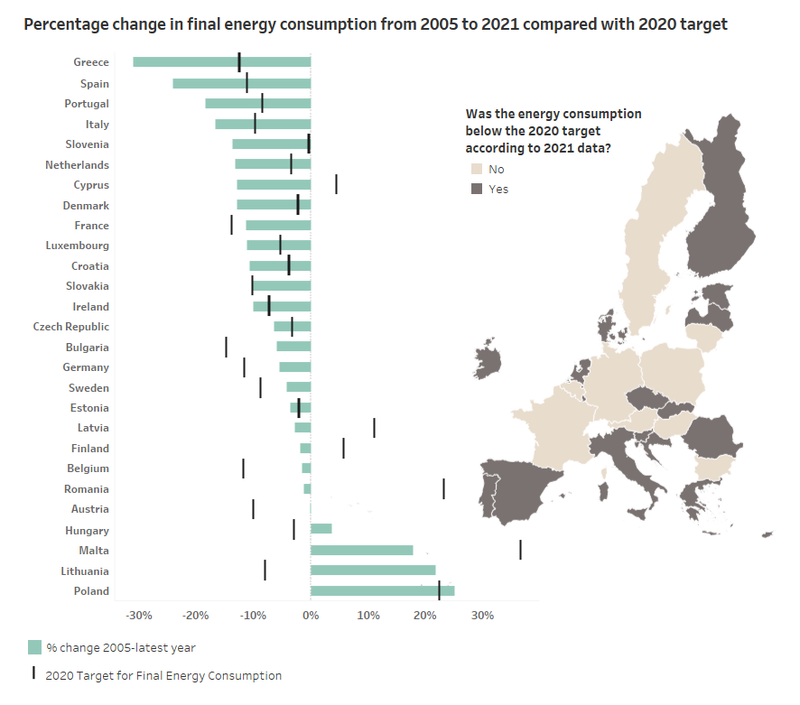All official European Union website addresses are in the europa.eu domain.
See all EU institutions and bodiesOur quality of life depends on a reliable supply of energy at an affordable price. Industry, transportation, services, cooking, heating, cooling and lighting, all rely on this. A speedy transition from fossil fuels to clean and renewable energy will significantly reduce the climate, health and environmental impacts of energy production and consumption, while ensuring energy security.
Although renewable and clean energy accounts for a growing share of Europe’s energy needs, we still depend on fossil fuels to obtain most of the energy we use, and their combustion affects us all. It releases air pollutants that harm our health. It also releases greenhouse gases that contribute to climate change.
In 2021, energy supply accounted for 26% of the EU’s greenhouse gas emissions (including international aviation). In recent decades, the EU set ambitious climate and energy targets aimed at boosting the share of renewable energy sources in the overall energy mix and saving energy through conservation and efficiency improvement measures. If achieved, greenhouse gas emissions and their impacts can be significantly reduced.
Europe relies on imported energy. Russia’s invasion of Ukraine highlighted the impacts of this dependence in fossil fuel imports and price fluctuations, and the importance of saving energy and transitioning faster to more reliable and affordable renewable energy sources. The EU’s RePowerEU plan is one of the key initiatives that address these latest concerns.
Residential and industrial heating and cooling account for roughly half of all gross final energy consumed from all sources across the EU in 2021. The remaining energy use is distributed equally between electricity generation and transport.
- Europe’s total share of renewable energy sources remained at 22,5% of gross final energy consumption in 2022.
- The share of renewables in the energy mix varies substantially across the EU. In Sweden, it has reached almost 70%; in Malta, only 11%.
- The total amount of energy we use in the EU peaked in 2006.
- in 2022, the EU’s final energy consumption by end users fell by 1.5% compared to 2021 levels. Primary energy consumption, which includes all energy uses, also fell by 4% from 2021 to 2022. Despite this recent progress and an overall reduction in energy consumption since 2005, achieving the 2030 targets will require annual reductions in energy consumption at a much faster rate.
- The EU is unlikely to meet its 2030 energy efficiency target to reduce final energy consumption and primary energy consumption by 32.5% if the trends stay constant.
- Almost 60% of the total energy consumed in the EU, in 2020 was imported. Russia has long been the single largest supplier of the EU’s energy imports.
The European Union and its Member States have set concrete and ambitious targets to facilitate Europe’s transition towards a cleaner energy system.
Currently, the adopted minimum EU targets for renewable energy and energy efficiency for 2030 are:
- A binding increase of the share of renewable sources to 32% of gross final energy consumption; and
- A binding decrease of 7% for final energy consumption and 9 % for primary energy consumption compared with the 2020 levels.
To meet the legally binding EU climate targets for 2030 and 2050 under the Climate Law, the European Commission proposed more ambitious EU targets for 2030 for renewable energy supply and energy savings. Recently, the REPowerEU plan set out key measures to rapidly reduce the EU’s dependence on Russian fossil fuels by further accelerating the clean energy transition.
The European Commission has proposed an amendment of the Energy Efficiency Directive with more ambitious targets for 2030: 36% for final energy consumption and 39% for primary energy consumption, paving the way for the overall goal of carbon neutrality by 2050.
The EEA helps monitor progress towards EU energy targets through indicators, assessments and dataset.
Explore further

Flexibility in Europe's power system
Flexibility is the power system’s ability to adjust to the fluctuating generation and consumption of energy. Flexibility can be provided in different timeframes, such as days, weeks or seasons and by different technologies.
With the EU 2030 renewables target of 42.5% (compared with 22% in 2021), this decade will see an accelerated decarbonisation of EU electricity supply.
EU Member States need to massively ramp up their renewable power capacity in the coming years. This increase in renewables from variable sources, such as wind and solar, will also increase the need for ‘flexibility’ in the EU electricity system.
A joint report by two EU agencies, EEA and ACER, demonstrates how Member States could exploit collaboration synergies to unlock flexibility and enhance energy security while contributing to long-term climate neutrality.
Heating or cooling our homes
About half of the EU’s final energy consumption goes to heating, making it a key focus area in Europe’s efforts to improve energy security and reduce greenhouse gas emissions.
Decarbonising heating represents one of the major challenges for Europe on the way to meeting climate targets for 2030 and 2050 and ensuring greater energy security. Energy efficiency measures alone are insufficient to decarbonise heating and cooling when fossil fuels are being used as the main energy source. In 2020, almost 80% of all household energy use regarded space and water heating, with over half of this energy being supplied by burning fossil fuels, notably gas. Investments in renewable and waste energy sources for heating and cooling are needed to reduce gas consumption, climate impacts and air pollution.


Can you become a prosumer?
Production of renewable energy by consumers — prosumption — can offer many benefits for individuals and society.
With high energy prices and energy insecurity currently affecting Europe, small-scale prosumption provides a pathway for citizens to increase their energy independence and scale up decarbonisation efforts. Prosumerism can also have social benefits, including a sense of community and empowerment.
Prosumers are now a key element of the recent REPowerEU proposal and its Solar Rooftop initiative. According to the EEA report, almost all EU citizens can contribute in one way or another and potentially become energy prosumers.
Is the European Union on track towards its climate and energy targets?
Energy consumption in Europe and lockdown effect?
Covid lockdowns have affected all aspects of our daily lives, including energy consumption in Europe.
In 2021, the EU’s primary energy consumption (which includes all energy uses) and final energy consumption (by end users) experienced a significant rebound from the extraordinary drop observed in 2020, according to EEA early estimates. Consumption increased across all sectors and energy sources, most notably for the transport sector and for solid fuels, respectively.
Despite this increase, both primary and final energy consumption remained below pre-pandemic levels. Europe has set targets to reduce energy consumption both at the EU level and at Member States level.

Source: Climate and energy in the EU website




